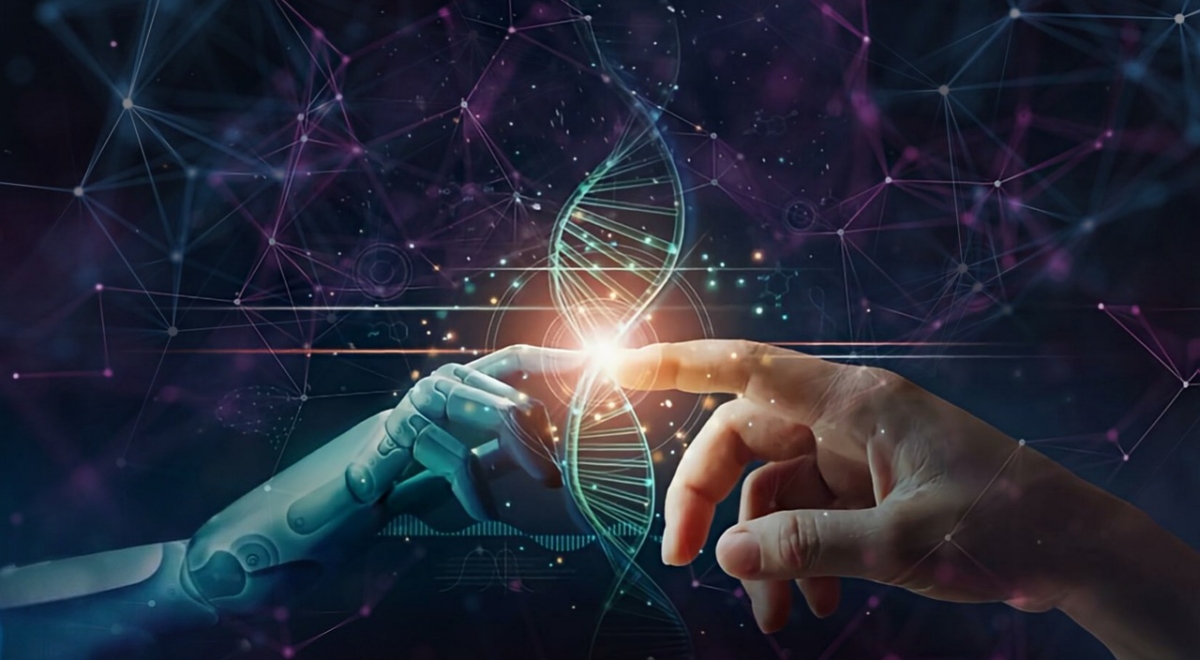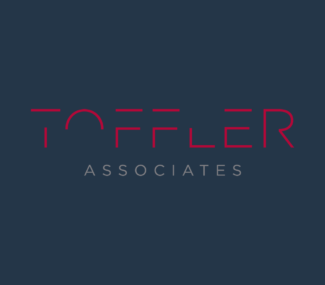The Convergence of Technology and Workforce: Key Takeaways for Building Future Resilience

Accelerating technological change is transforming how work gets done. As artificial intelligence (AI), automation, and digitalization reshape roles and required skills, what is the path forward?
To begin to answer this question, Toffler Associates brought together our Experts in Residence—luminaries across government, military, academia, and industry—for an engaging discussion on the convergence of technology and the workforce. Here are some of the top imperatives that emerged from this multifaceted dialogue. Read on and download here.
Cultivating New Mindsets in the Age of Intelligent Machines
Amidst rapid technology proliferation, the fundamental nature of work is evolving. Rather than resist change, we must reorient our mindsets to embrace human-machine collaboration and trust. Organizations should provide continuous learning to help employees adapt to using the new tools to gain productivity and build AI collaboration skills. Educational systems must prioritize creativity over rote learning. Policymakers should implement safety nets during transitional periods. Individuals should see themselves as lifelong learners. The future demands new mental models that accept change as the norm. As emerging technologies become more autonomous, we must remember the human values that technology should ultimately serve.
Maintaining Technical Expertise Alongside “Human Skills”
While “human skills” like critical thinking and empathy are crucial, so are technical capabilities and creativity. As technology excels in niche applications, human expertise in domains like engineering, cybersecurity, healthcare are indispensable. Individuals need both human skills for adaptability and technical mastery for workplace viability. Organizations must understand that while machines can automate tasks, certain roles still require specialized human insight.
Pursuing Continuous Learning in the Age of AI
Curiosity will become a more valued skill. With accelerating change, one-time education no longer suffices. Continuous upskilling and reskilling will be imperative for individuals and organizations alike. Forward-thinking companies will invest heavily in employee development. Individuals must prioritize lifelong learning and think of careers like jungle gyms instead of ladders. We need ecosystems that support micro-credentialing, online education, mentorships, certifications, and policies incentivizing constant skill-building. As knowledge evolves rapidly, organizations and individuals that embrace continuous learning will have strategic advantage. Those that fail to adapt risk obsolescence.
Understanding AI through Diverse Global Perspectives
Much AI research happens in Western contexts. But applications in non-Western nations may differ based on varied attitudes toward data privacy, acceptable risk levels, and cultural priorities. Developing ethical AI governance demands understanding international viewpoints and recognizing different standards, policies, and values may exist and what that means to an interconnected, globalized society and economy. We must also ensure underprivileged populations benefit from AI and tat technology adoption does not widen income disparity. Technology should be leveraged as a force multiplier that enhances global prosperity in an equitable fashion.
Navigating Workforce Disruptions with Empathy
Technological disruptions often disproportionately impact certain demographics. Entire occupations may disappear as new ones emerge. Corporations and governments must support displaced workers through retraining and safety nets. Transparency about tradeoffs, not hype, should ground discourse. Policies must balance innovation’s benefits with mindfulness about human impacts.
Keeping Human Values Front and Center
For all its promise, technology cannot displace timeless human values like dignity, fulfillment, and purpose. Education must continue emphasizing ethics, philosophy, arts, and humanities amidst scientific advancement. Wise governance of emerging technologies should enshrine ideals that transcend any single period. Keeping shared humanity central will lead to optimal futures.
Moving Beyond False Dichotomies
Debates on technology’s impact often devolve into binaries like utopia vs. doomsday. The optimal path lies between these extremes. Neither blindly championing nor condemning emerging tech is prudent. With nuance, we can recognize both opportunities and risks. AI and humans have complementary capabilities suited for particular tasks. The key is responsible collaboration.
Embracing Organizational Agility in an Era of Accelerating Change
Accelerating technological progress and work evolution make adaptability essential. Static models will falter amidst uncertainty. Organizations need dynamic structures where workers fluidly transition between roles and teams. Individuals should value adaptability and constant learning. And policies should flexibly evolve based on evidence, not ideology. Nimbleness is becoming one of the most vital capabilities in the age of AI. Companies and individuals that embrace it will stay ahead.
Motivating and Developing Workforces amid Technological Change
Organizations must motivate employees by soliciting input on leveraging technology to meet objectives. Transparency and engagement around AI opportunities are key. Talent should be developed holistically and account for neurodiversity, with continuous retraining focused on augmenting rather than replacing human skills. This expands creativity by showing how humans can complement machines. As AI quickly scales expertise, career timelines likely need recalibration, but hands-on experience alongside smart systems remains vital. Learning must be democratized so all groups can upskill for human-AI collaboration.
Acknowledging the Future of Work Begins NOW
The fusion of emerging technology with the workforce brings both immense opportunity and disruption. By collectively shaping responsible frameworks guided by human values, we can build an inclusive future. But adapting mindsets must begin today, not tomorrow.
This time of flux is also an opportunity to collectively shape the future of work we want. Doing so successfully will require perspectives that incorporate technology’s benefits while centering shared human values. With wisdom, foresight and empathy, we can build a society where both humans and advanced tools collaborate synergistically. But we must begin aligning mindsets now.


 About the Authors
About the Authors